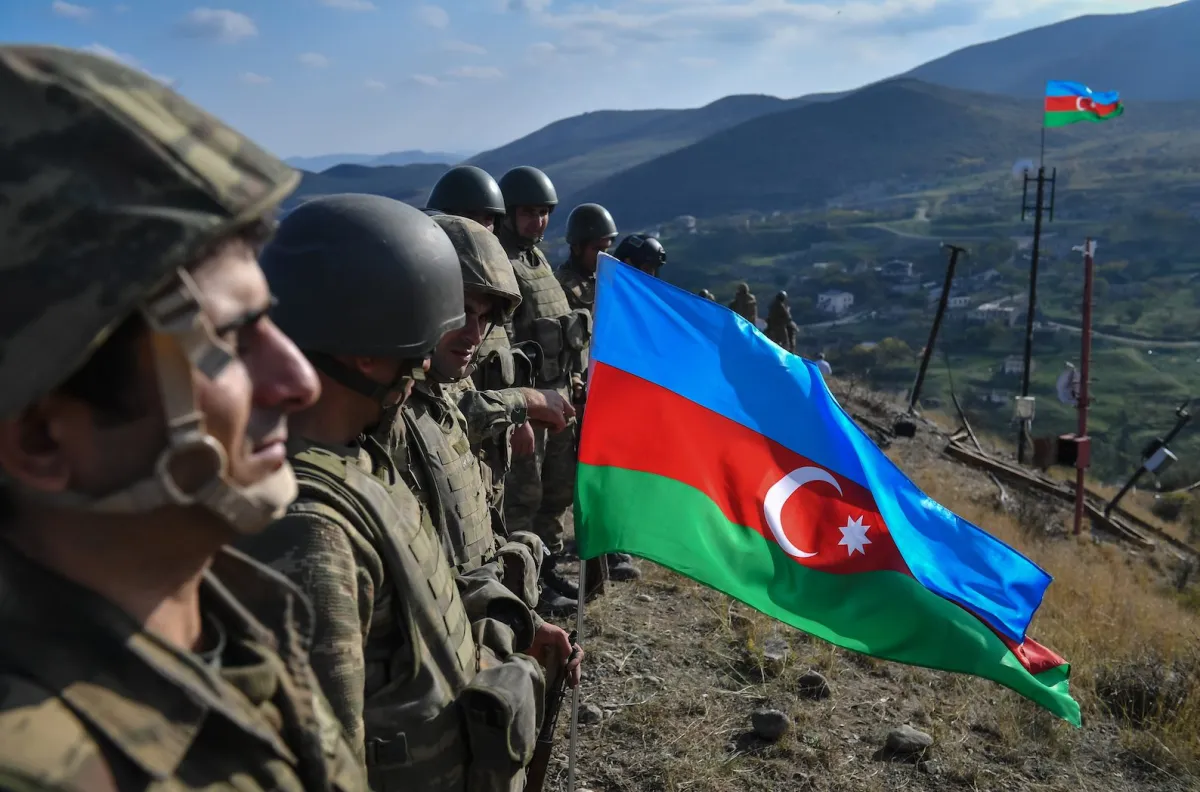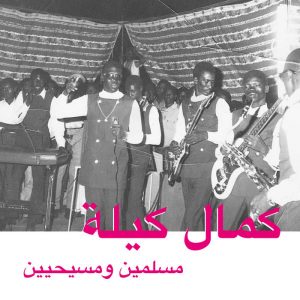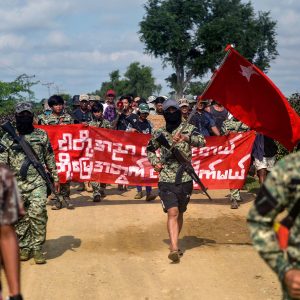Since the fall of the Soviet Union, the South Caucasus has been at the crossroads of regional and great power geopolitics. For the past three decades, the most difficult to navigate of these flashpoints is Nagorno-Karabakh. The Armenian-majority enclave in Azerbaijan has long been at the center of a power struggle between Armenia and Azerbaijan. Nagorno-Karabakh is becoming a new front where regional and international powers try to expand their spheres of influence. The rising instability in the Caucasus risks engulfing the region in another war, an outcome the international community must try to avoid.
The region had been under a ceasefire agreement since six weeks of violence erupted in 2020 when an Azerbaijani offensive reclaimed a significant amount of territory. It was the second time a war was fought over control of Nagorno-Karabakh after the first ended in 1994. Unfortunately, the deal did little to remedy the tension. The Azerbaijani military blockaded the enclave in late 2022, severely depleting food, medicine, gas, and other essential supplies. In March earlier this year, Russia accused Azerbaijan of violating the ceasefire and escalating the conflict. It culminated in the September invasion that finally toppled the breakaway Republic of Artsakh. Russia’s absence from the sequence of events was notable, as the country has historically been Armenia’s closest and strongest ally in the post-Soviet era. However, it has yet to come to the aid of its small neighbor.
The most obvious explanation for this development is Russia’s invasion of Ukraine. Russia’s blunders in Ukraine drained the economic and military might that deterred Azerbaijan in the past. Geopolitical realignments also make Moscow unwilling to intervene and risk conflict with Baku. Azerbaijan has a big backer in Turkey, a NATO country that controls the Bosphorus strait maintaining Russia’s access to the Mediterranean. While Ankara is more open than the rest of NATO to compromise with Moscow, it too has concerns. Upsetting Ankara would be disastrous for an already faltering Russian economy.
Beyond the invasion, Russia’s inaction may be retribution for Armenia shifting westwards diplomatically. Moscow and Yerevan have grown more distant since Armenia’s peaceful color revolution in 2018 ousted Armenia’s authoritarian, Russia-friendly Prime Minister Serzh Sargsyan, bringing a progressive Nikol Pashinyan to power. Armenia remains dependent on Russia for its economy and military, and the pro-democracy movement does not challenge the foreign policy status quo. However, it does weaken Putin’s oligarchic reach which makes Armenia insecure about Russia’s support. When Pashinyan blamed Russia for failing to protect Armenians in Nagorno-Karabakh, Russia retaliated by accusing Pashinyan of “deliberately trying to destroy Armenia’s multi-faceted and centuries-old ties with Russia while making the country hostage to the geopolitical games of the West.” Such rhetoric suggests that, even if Russia had been at full strength, there may have been much less retaliation than Armenia hoped for. Azerbaijan took advantage of a weakened, distracted, and disinterested Russia to reclaim Nagorno-Karabakh. As Russia steps away from its role as the dominant stabilizing influence in the Caucasus, other countries rush to fill the mediator role for their own interests.
Turkey, an aspiring regional power, has stepped in where the global policeman has backed out. It has been a staunch supporter of Azerbaijan since its independence in 1991, owing to their strong ethnic, cultural, and religious ties. From their strong foundations, the nations have forged close economic relations, with Turkey being the main conduit for the export of Azerbaijan’s natural resources. Turkey backs Azerbaijan’s claims over Nagorno-Karabakh, supporting their ally with weapons and military training. Through Azerbaijan, Turkey also hopes to limit rival Iran’s expanding sphere of influence.
Turkey’s relationship with Armenia is significantly more strained. The two have no diplomatic relationship, with Turkey closing the border to Armenia in support of Azerbaijan. Relations have been strained since the Armenian Genocide carried out by the Ottoman Empire over a century ago, which Turkey still refuses to acknowledge responsibility for. Without the backing of Russia, Armenia is powerless to defend against a Turkey-backed Azerbaijan.
However, an unexpected player is stepping into the power vacuum: Iran is the newest power to get involved in the Armenia-Azerbaijan conflict. Iran has historically expanded its regional influence through destabilizing policies carried out by violent non-state actors like Hezbollah and Hamas. Doing so weakens countries that Iran sees as rivals or enemies. As a country that prefers using proxies and other indirect tactics to achieve its geopolitical aims while avoiding conflict, Iran sees Armenia’s plight as an opportunity to undermine its regional rivals. With this in mind, the Islamic Republic has not called on its non-state actors, but is actively presenting itself as a supporter of Armenian security where Russia has failed.
As a fledgling democracy with little cultural connections with Iran, Armenia’s cooperation may seem a surprise, especially given that Iran and Azerbaijan follow the same Shia Muslim sect. Indeed, the relationship arises out of necessity rather than willingness. Armenia needs more allies; Iran wants to check the growing power of Turkey and Azerbaijan. Though Tehran and Ankara share strong economic ties, the two see each other as threats to their own expansion of influence in the region which has put them at odds on issues ranging from the Syrian Civil War to the Nagorno-Karabakh. The partnership between Yerevan and Tehran is therefore a practical one, given that both have shared security concerns around their borders. However, with the Iranian regime recently losing legitimacy at home in violent ongoing protests, its actions overseas may become increasingly aggressive and cause unwanted problems in the Caucasus.
The Western bloc has been quiet in all this. The United States and European Union, longtime champions of universal human rights, allowed the blockade to continue with little consequence even as they strengthened their energy ties with Azerbaijan. The US engagement in the South Caucasus reflects its containment policy targeted towards Russia and Iran, a policy that it sees Azerbaijan supporting at the cost of Armenian lives. For some time, the US has tried to remain neutral, calling both sides to cease hostilities and refusing to call out Azerbaijan’s aggressive and coercive tactics. Little evidence beyond this shows that the US has a vested interest in Armenia’s future, even after Armenia’s extensive retrofitting into a Western Bloc-friendly nation. Failure to hold Azerbaijan accountable has emboldened its expansionist policies. For all the diplomatic lip service calling for peace, the US seems uninterested in stepping into a conflict that its longtime hegemonic rival has left behind.
With the escalation of tensions, a regional conflict seems much more likely. Neither side seems interested in finding a peaceful solution, instead using the situation to encourage their own international standings. Those keenest to de-escalate, namely the US and the EU, have little strategic interest and have done little to discourage the aggressive advancements of Turkey and Azerbaijan. It has also left Armenia vulnerable to the whims of Iran.
Armenia’s people, culture, and history are now caught in the middle of a power conflict that threatens to get out of hand. After the September invasion, US Secretary of State Anthony Blinken raised concerns that Azerbaijan could invade Armenia after its lightning-fast success in Nagorno-Karabakh. Turkey and Iran’s high stakes in the conflict, coupled with their powerful militaries, make the prospect of a regional war all too unsettling. The US has often been the one to intervene in such a growing crisis, a drive shown in Ukraine and Israel. Yet, with the traditional regional hegemons preoccupied with their existing commitments, the Armenian people are at great risk of systematic elimination from countries that have little interest in their survival.
Feature Image: Alexey Kudenko/Sputnik






Comments are closed.